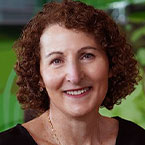By: Mary Caserta, MD, FAAP & Andrea Jones, MD, FAAP
Almost all children get infected with respiratory syncytial virus (RSV) at least once before they are 2 years old. For most healthy children, RSV is like a cold. But some children get very sick with RSV.
If you are the parent of a baby or young child, you may have questions about RSV and the
newest ways to prevent severe illness. Read on to learn more.
What is RSV?
RSV is one of the many viruses that cause respiratory illness. It spreads like a
cold virus from person to person. It enters the body through the nose or eyes, usually from contact with infected saliva, mucus or nasal discharge.
These infections usually occur in the late fall through early spring months. The
timing can vary in some parts of the country.
RSV is the most common cause of hospitalization in children under age 1 year. Two to three out of every 100 infants in the US with
RSV infection may require a
hospital stay. Those babies may need
oxygen to help with breathing or (intravenous) IV fluids if they are not eating or drinking. Many of these children get better and can go home after a few days.
The latest ways to protect babies from RSV
There are now
immunizations to protect babies from severe illness during RSV season. You can choose RSV immunization during pregnancy, or your baby can be immunized after they are born. Most infants will likely only need protection from the maternal RSV vaccine or the infant immunization, but not both.
RSV vaccine during pregnancy
Pregnant people can receive the
maternal RSV vaccine (Abrysvo) at 32 through 36 weeks of pregnancy if their baby will be born during RSV season. The vaccine is given from September through January and reduces the risk of RSV hospitalization for babies by 57% in their first six months after birth.
The RSV vaccine for pregnant people is given just once. If you received the RSV vaccine during any pregnancy, you should not get another dose if you are pregnant again. Babies born from later pregnancies should receive the immunization for babies. See below for information about infant immunization.
RSV immunization for babies
An RSV immunization can be given as a single injection during or just before RSV season. Two products have been approved to protect babies from severe RSV disease.
Babies can receive one of these immunizations at the hospital when they are born or at their first checkup visit. If your baby was born before the RSV season and they are younger than 8 months old, they should receive the RSV immunization. It is also recommended for some children age 8 through 19 months who are at increased risk for severe RSV disease and entering their second RSV season.
Immunizations for babies have been shown to be approximately 80-90% effective in preventing infants from being hospitalized with RSV. These immunizations work a little differently than a traditional vaccine. They provide preventive antibodies that start working to protect babies right away. The protection lasts throughout a typical RSV season.
RSV symptoms in babies
Typically, RSV causes cold symptoms. Those symptoms may be followed by bronchiolitis or pneumonia. These are infections of the lower airways in the chest or lungs.
RSV symptoms are typically at their worst on days 3 through 5 of illness. Symptoms generally last an average of 7-14 days.
Cold symptoms may include: | May include
cold symptoms, plus:
Fast breathing Flaring of the nostrils & head bobbing with breathing Rhythmic grunting during breathing
Belly breathing, tugging between the ribs and/or the lower neck
(see video, below)
Wheezing
|
How hard is your baby breathing? What to look for
Watch your child's rib cage as they inhale. If you see it "caving in" and forming an upside-down "V" shape under the neck, then they are working hard to breathe.
These are called "chest wall retractions" and happen when a baby must use muscles between the ribs or in the neck to breathe. It is a sign that your baby is having to work harder than normal to breathe.
Call your pediatrician right away if your child has:
Symptoms of bronchiolitis
(listed above)
Symptoms of
dehydration (fewer than 1 wet diaper every 8 hours)
Pauses or difficulty breathing
Pale, gray or blue-colored skin, lips or nail beds, depending on skin tone
Significantly less activity and alertness
Some children with RSV may be more likely to get a bacterial infection, such as an ear infection. Call your doctor if your child has:
Symptoms that worsen or do not start to improve after 7 days
A
fever (with a rectal temperature of 100.4°F or higher) and they are younger than 3 months of age (12 weeks).
A
fever that rises above 104°F repeatedly for a child of any age.
Poor sleep or fussiness, chest pain, ear tugging or ear drainage
Pediatricians diagnose children with a cold or bronchiolitis by doing a physical exam and checking oxygen saturation.
Your pediatrician may do a nasal swab test to determine if your child has RSV or another virus. A chest x-ray test may also be done to check for lung infection.
How to help your child with mild RSV feel better
There is no specific treatment for RSV and medications, like steroids and antibiotics, do not help with RSV.
To help your child feel more comfortable, begin by doing what you
would for any bad cold:
Nasal saline with gentle suctioning to allow easier breathing and feeding
Cool-mist
humidifier to help break up mucus and allow easier breathing
Fluids & frequent feedings
Make sure your child is staying
hydrated
Infants with a common cold may feed more slowly. They might not feel like eating because they are having trouble breathing.
Supplementing with water or formula is unnecessary for breastfed babies.
If it's difficult to breastfeed the baby,
expressing breastmilk into a cup or bottle may be an option.
Try to suction baby's nose before trying to breast or bottle-feed
Acetaminophen or ibuprofen (if older than 6 months) to help with low-grade fevers. Always
avoid aspirin and cough and cold
medications.
Keep in mind, children and
adults can get RSV multiple times—even during a single season. Often, however, repeat infections are less severe than the first one.
Other ways to help prevent RSV
Stay up to date on vaccines
Keep your children up to date on their
immunizations
Get the whole family annual flu and COVID shots.
Adults over age 60 years can get the
RSV vaccine.
Getting vaccinated with
Tdap―to protect against
whooping cough—is especially important for pregnant people during each pregnancy and for household members and caregivers who are around infants.
Limit your baby's exposure to crowds, other children, and anyone with colds. Keep children home from school or childcare when they are sick and teach them to cover their coughs and sneezes.
Wash your hands. Just as you would to prevent germs at any time, use soap and water and scrub for at least 20 seconds. Remind children to practice good hand hygiene all year.
Go germ-free. Disinfect objects and surfaces in your home regularly and avoid exposing your child to smoke from tobacco or other substances.
Feed your baby breastmilk. It has
unique antibodies to prevent and fight infections.
Medicine is always advancing! Researchers continue to explore new options to prevent and treat RSV. Don't hesitate to talk with your child's pediatrician about the best ways to keep your child healthy.
More information
About Dr. Caserta
 Mary T. Caserta, MD, FAAP, is a Professor of Pediatrics in Infectious Diseases at the University of Rochester Medical Center (URMC) in New York. Her early research focused on human herpesvirus research. Recently, her research has focused on viral respiratory disease. For over 10 years, she also has conducted clinical trials of vaccines and treatments of viral infections. Dr. Caserta is a fellow of the Infectious Disease Society of America and member of the Pediatric ID Society. Dr. Caserta is a member of the American Academy of Pediatrics Committee on Infectious Diseases. Mary T. Caserta, MD, FAAP, is a Professor of Pediatrics in Infectious Diseases at the University of Rochester Medical Center (URMC) in New York. Her early research focused on human herpesvirus research. Recently, her research has focused on viral respiratory disease. For over 10 years, she also has conducted clinical trials of vaccines and treatments of viral infections. Dr. Caserta is a fellow of the Infectious Disease Society of America and member of the Pediatric ID Society. Dr. Caserta is a member of the American Academy of Pediatrics Committee on Infectious Diseases.
|
About Dr. Jones
 Andrea N. Jones, MD, FAAP, is a board-certified general pediatrician. She is an Associate Professor in the Department of Pediatrics at the University of Wisconsin School of Medicine and Public Health. Dr. Jones is a member of the Wisconsin Chapter of the American Academy of Pediatrics.
Andrea N. Jones, MD, FAAP, is a board-certified general pediatrician. She is an Associate Professor in the Department of Pediatrics at the University of Wisconsin School of Medicine and Public Health. Dr. Jones is a member of the Wisconsin Chapter of the American Academy of Pediatrics.
|